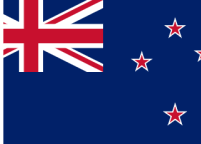1. Introduction to New Zealand Immigration
New Zealand is one of the favoured destinations for immigrants. In 2023, NZ Immigration witnessed a significant influx of 130,800 migrants, surpassing the pre-COVID average of 121,400 for January (2002–2020), and 2023 was one of the busiest years for New Zealand Immigration, with over a million decisions made. (source: https://www.immigration.govt.nz/)
New Zealand, known for its beautiful landscapes, lively culture, and excellent quality of life, attracts immigrants worldwide. Ranked 2nd in the 2021 Global Peace Index, it is celebrated for its safety, political stability, and inclusive society. The country offers a balanced lifestyle, merging urban conveniences with easy access to nature’s wonders – from pristine beaches to majestic mountains.
Reasons People Choose to Immigrate to New Zealand
- Quality of Life: New Zealand is highly ranked in global rankings for quality of life. It provides a clean and green setting and emphasizes balancing work and life.
- Economic Stability: With an economy known for its resilience and growth, New Zealand offers diverse job opportunities, particularly in sectors like IT, healthcare, and agriculture.
- Education System: The education system is world-class, with public and private institutions providing high-quality education, from primary schools to universities (e.g., the University of Auckland ranks among the top 100 in the QS World University Rankings 2022).
- Healthcare System: Residents benefit from a comprehensive public healthcare system complemented by quality private healthcare facilities.
- Cultural Diversity: New Zealand prides itself on being a multicultural society, welcoming immigrants from various backgrounds and promoting Maori culture.
2. Understanding New Zealand’s Immigration System

Types of Visas and Permits Available
- Skilled Migrant Category Visa: For New Zealand individuals with skills and experience in demand.
- Family Category Visas: Including partner, dependent child, and parent category visas.
- Student Visa: For international students enrolled in New Zealand institutions.
- Work Visas include the Essential Skills Work Visa, Work to Residence Visa, and Specific Purpose Work Visa.
Criteria and Eligibility for Key Visa Categories
- Skilled Migrant Category Visa: This is a Points-based system that considers factors like age, work experience, qualifications, and an offer of professional employment in New Zealand.
- Family Visas: Require proof of relationship and, in some cases, financial support from the New Zealand resident or citizen.
- Student Visa: This visa requires an offer from a recognized New Zealand educational institution and proof of sufficient funds to live.
- Work Visas: Criteria vary based on the type of work visa, typically requiring a job offer from a New Zealand employer and meeting specific skill criteria.
Recent Changes in Immigration Policies
- 2021/2022 Policy Adjustments: Notable changes include introducing the Accredited Employer Work Visa (AEWV) and replacing six previous work visas to streamline the process.
- COVID-19 Impact: Due to the pandemic, Temporary border closures and adjustments to visa processing have been in place, though New Zealand has been progressively reopening its borders to international travellers, including skilled workers and students.
- Green List: In 2021, Immigration New Zealand introduced the Green List, highlighting 85 hard-to-fill roles and making it easier for people with these skills to gain residency.
3. Step-by-Step Guide to the Immigration Process

Documentation and Preparation
- Gather Essential Documents: This includes passports, birth certificates, marriage certificates, police clearance certificates, and medical examinations. For work visas, job offer letters and employer credentials are needed.
- Qualification Evaluation: For skilled visas, the New Zealand Qualifications Authority (NZQA) will verify your qualifications.
- English Language Proficiency: IELTS or equivalent test scores, if applicable.
- Financial Proof: Evidence of sufficient funds for living expenses or a job offer for work visas.
Application Submission and Processing
- Online Applications: Most New Zealand visa applications are submitted online through the Immigration New Zealand website.
- Application Fees: Application fees vary depending on the type of visa. For instance, the application fee for the Skilled Migrant Category is approximately NZD 2,710. For the latest information, please refer to ICL Support or visit the official New Zealand Immigration website.
- Processing Duration: This can vary from a few weeks for visitor visas to several months for skilled migrant visas. As of 2021, the average processing time for Skilled Migrant visas was around 8-12 months. For the latest information, please refer to ICL Support or visit the official New Zealand Immigration website.
Interview and Approval Process
- Interviews: Occasionally required for clarification or verification. Not all applicants are interviewed.
- Approval Notifications: Applicants will receive notifications via email or through the online application system.
Post-Approval Steps and Arrival in New Zealand
- Visa Labeling: If required, have your visa label on your passport.
- Arrange Travel: Book flights to New Zealand.
- Initial Accommodation: Arrange temporary housing for your arrival, such as hotels or short-term rentals.
4. Settling in New Zealand: The First Steps

Finding Accommodation
- Rental Market: Popular websites for finding rentals include TradeMe and RealEstate.co.nz.
- Average Rent: As of 2021, the average weekly rent in Auckland was around NZD 550-600 for a three-bedroom house.
- Tenancy Agreements: Familiarize yourself with New Zealand’s tenancy laws and your rights as a tenant.
Navigating Healthcare, Banking, and Other Essential Services
- Healthcare Registration: Enroll in the public healthcare system or arrange for private health insurance.
- Opening a Bank Account: Major banks include ANZ, ASB, BNZ, and Westpac. You’ll need proof of address and identification.
- Getting an IRD Number: Essential for tax purposes. Apply through Inland Revenue.
Understanding New Zealand’s Tax System and Legal Obligations
- Tax System: Progressive tax system; as of 2021, personal tax rates ranged from 10.5% to 39% for income over NZD 180,000.
- GST: Goods and Services Tax in New Zealand is 15%.
- Employment Laws: Understand your rights and obligations under New Zealand’s employment laws, including minimum wage, leave entitlements, and work hours.
5. Employment and Education in New Zealand

Job Market Overview and Tips for Finding Employment
- Growing Sectors: Key industries include agriculture, tourism, healthcare, IT, and construction.
- Unemployment Rate: As of 2021, New Zealand’s unemployment rate was around 4.6%.
- Job Search Platforms: Seek, Trade Me Jobs, and LinkedIn are popular for job searching.
- Networking: Engage in professional networking events and local community groups.
- CV and Cover Letter: Tailor your CV and cover letter to New Zealand standards, highlighting relevant experience and skills.
Recognition of Foreign Qualifications
- Assessment Bodies: NZQA assesses foreign qualifications for equivalency in New Zealand.
- Professional Registration: Some professions (like nursing, engineering, and teaching) require registration with a New Zealand professional body.
- Further Studies: Depending on the assessment, some may need additional study or exams to meet New Zealand standards.
Information on New Zealand’s Education System for Families and Students
- System Overview: The education system includes primary, secondary, and tertiary levels.
- International Rankings: New Zealand’s education system is ranked in the top 20 globally by the Legatum Prosperity Index 2021.
- Tertiary Education: Renowned universities like the University of Auckland, University of Otago, and Victoria University of Wellington.
- Cost of Education: Public primary and secondary education is free for citizens and residents. International student fees vary based on the institution and level of study.
6. Embracing the Kiwi Lifestyle
 New Zealand is known for its rich cultural diversity and inclusive society. The country’s demographics reflect indigenous Maori culture, European influence primarily from British colonization, and significant Asian and Pacific Islander communities.
New Zealand is known for its rich cultural diversity and inclusive society. The country’s demographics reflect indigenous Maori culture, European influence primarily from British colonization, and significant Asian and Pacific Islander communities.As of the latest census, the population comprises approximately 16.5% Maori, 70% European, 15% Asian, and 8% Pacific Peoples, showcasing a multicultural tapestry. Auckland is mainly known for its ethnic diversity, home to over 200 ethnic groups.
- Cultural Diversity: Rich blend of Maori, European, Pacific Island, and Asian cultures.
- Community Events: Participation in local events, sports clubs, and cultural festivals is a great way to immerse in Kiwi culture.
- Work-Life Balance: New Zealanders value work-life balance, outdoor activities, and family time.
Tips on Integrating into Local Communities
- Join Local Groups: Engage with community groups or clubs based on your interests.
- Learn Maori Culture: Understanding and respecting Maori traditions and language (Te Reo) is essential for integration.
- Volunteering: A great way to meet people and help the community.
7. Language Integration
While English is the primary language spoken in New Zealand, Te Reo Maori and New Zealand Sign Language are official languages. Efforts to revive the Maori language and culture have seen a positive trend, with increasing numbers of New Zealanders learning and speaking Te Reo.
For immigrants, integrating linguistically involves learning English and understanding and respecting the indigenous Maori language. Government and community programs are available to assist non-native speakers in learning English, and many schools offer Te Reo Maori classes, reflecting the nation’s commitment to bilingualism and cultural respect.
8. Social Norms and Etiquette
New Zealanders, colloquially known as Kiwis, are known for their friendly and relaxed demeanour. Essential social norms include a strong sense of community, fairness, and a laid-back attitude. It is common for Kiwis to value modesty and downplay their achievements.
- When meeting someone, a handshake is standard, and using first names in professional and social contexts is common, reflecting New Zealand society’s informal and egalitarian nature.
- Understanding and respecting Maori customs, such as the traditional Maori greeting ‘hongi’, is also appreciated. The country prides itself on its clean, green environment, so environmental consciousness and sustainability are deeply ingrained in social practices and expectations.
Highlighting Recreational Activities and Unique Experiences in New Zealand
- Outdoor Adventures: Activities like hiking in national parks, skiing in the Southern Alps, and enjoying beaches.
- Cultural Experiences: Visit places of cultural significance like the Waitangi Treaty Grounds and Te Papa Museum.
- Sports: Rugby is a national passion, but there are also opportunities to participate in or watch cricket, netball, and sailing
9. Resources and Support for Immigrants
Government and Community Resources Available to Immigrants
- New Zealand Immigration Website: The primary source for visa information, policies, and application processes.- https://www.immigration.govt.nz/
- Citizens Advice Bureau (CAB): Offers free, confidential advice to anyone about immigration, housing, employment, and legal matters.- https://www.cab.org.nz/
- Settlement Support: Specialized services provided by the New Zealand government to help immigrants settle, including language classes, employment advice, and community integration programs.
- Community Centers: Host events and resources to help new immigrants network and assimilate.
- Local Councils: Provide information on local services and facilities and often have specific resources for new residents.
Tips on Building a Support Network
- Connect with Cultural Associations: Join organizations or groups related to your home country or cultural background.
- Social Media and Online Forums: Platforms like Meetup and Facebook groups can be great for meeting people with similar interests or situations.
- Networking Events: Attend local networking events, which can benefit professional and personal connections.
Common Challenges and How to Overcome Them
- Language Barrier: Take advantage of English language classes offered by community centres or online platforms.
- Cultural Differences: Participate in cultural exchange programs or events to better understand and appreciate Kiwi culture.
- Homesickness: Keep in touch with your loved ones back home while also trying to form new connections in New Zealand.
10. Conclusion and Encouragement
Final Thoughts on the Benefits and Joys of Life in New Zealand
New Zealand offers a unique combination of a robust economy, stunning natural landscapes, a high standard of living, and a warm, welcoming community. The focus on balancing work and life, protecting the environment, and embracing cultural diversity renders it a perfect choice for those looking for a new place to live. Moreover, the nation’s dedication to offering top-notch education and healthcare adds to its attractiveness as a destination suitable for families.
Encouragement for Those Considering the Move
Moving to a new country is a significant decision. It can be challenging, but the rewards of a life in New Zealand are plentiful. The sense of community, personal and professional growth opportunities, and the country’s sheer beauty make it a worthwhile choice. Immigrants are encouraged to embrace the challenges as part of the journey and fully immerse themselves in New Zealand’s opportunities. With the proper preparation and mindset, transitioning to a new life in New Zealand can be a fulfilling and enriching experience.
FAQs and Additional Resources
FAQs: Answering Common Questions About New Zealand Immigration
- What is the first step in applying for a New Zealand visa? – The first step is determining which visa category suits your situation. Visit the official New Zealand Immigration website for a ‘VisaOptions’ tool to help identify the correct visa for you.
- How much does it cost to apply for a New Zealand visa? – Visa application fees vary. For example, as of 2021, a Skilled Migrant Category visa application costs approximately NZD 2,710. For the latest fees on the New Zealand Immigration website.
- How long does it take to process a New Zealand visa application?- Processing times depend on the visa type. Skilled Migrant visas take around 8-12 months, while visitor visas may take a few weeks. Check current processing times online for the most accurate information.
- Can I bring my family with me on a work visa? – Many work visas allow you to include your partner and dependent children. Each family member must meet the visa requirements.
- Do I need a job offer to apply for a work visa in New Zealand? – For most work visas, including the Skilled Migrant Category, a job offer from a New Zealand employer is required. However, there are exceptions, so it’s best to check specific visa criteria.
- What is the points system for skilled immigration, and how does it work? – The Skilled Migrant Category operates on a points system based on age, work experience, and qualifications. Generally, a higher point total increases the likelihood of visa approval.
- Is healthcare free in New Zealand? – Residents benefit from a public healthcare system that provides most healthcare services free of charge. However, some services, like GP visits, may incur a fee.
- Can I study in New Zealand on a work visa? – Work visa holders can usually study for short courses (up to three months). For longer courses, a student visa is required.
- How do I convert my temporary visa to a permanent residence? – This depends on your visa type. Some work visas, like the Skilled Migrant Category, offer pathways to permanent residency.
- Is New Zealand immigrant-friendly? – New Zealand is known for being friendly to immigrants and having a society with many cultures.
References, Links to Essential Resources and Further Reading
- New Zealand Immigration: Official Website
- Comprehensive resource for visa information, application forms, and guidelines.
- https://www.immigration.govt.nz/
- New Zealand Now: New Zealand Now Website
- A guide to living, working, and moving to New Zealand, including immigrant stories. –
- https://www.live-work.immigration.govt.nz/
- Citizens Advice Bureau: CAB Website
- Guides various subjects, such as immigration.
- https://cab.org.nz/
- Seek: Job Search Website
- A leading job searching platform in New Zealand.-
- https://www.seek.co.nz/
- Tenancy Services: Tenancy Services Website
- Essential information for renters in New Zealand.
- https://www.tenancy.govt.nz/
- Inland Revenue: IRD Website
- Information about taxes and obtaining an IRD number.
- https://www.ird.govt.nz/
Your Partner in NZ Dream:
Embarking on the journey to New Zealand may initially seem challenging, but with ICL Immigration by your side, it will be pleasant and smooth. Our dedicated team, comprised of seasoned professionals, is committed to providing unwavering support throughout your journey.
As licensed Immigration Advisors based in Auckland, NZ, we bring over two decades of experience, ensuring that your New Zealand dreams are not merely aspirations but tangible realities.
Disclaimer:
For the latest information, always refer to the official Immigration New Zealand or New Zealand government websites.














